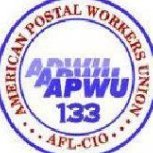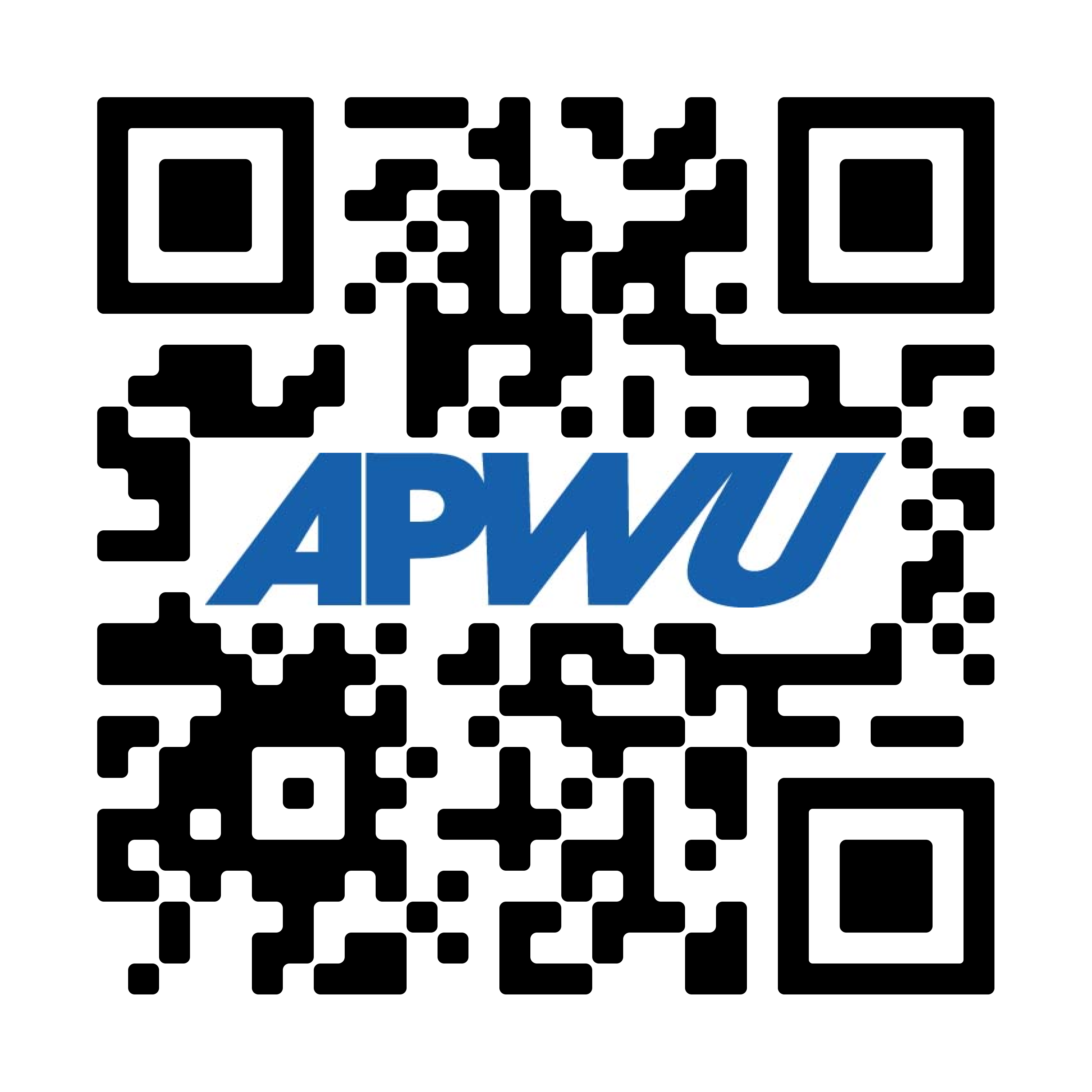- 0 replies
- 774 views
- Add Reply
- Talk to your coworkers about why they should join the union, and sign them up!
- Attend a union meeting - or other union events - and ask your coworkers to join you.
- Join a committee within your local union or consider becoming a shop steward.
- 0 replies
- 639 views
- Add Reply
- 0 replies
- 744 views
- Add Reply
- 0 replies
- 939 views
- Add Reply
- 0 replies
- 796 views
- Add Reply
APWU Proudly Supports United Auto Workers' (UAW) Strike For Strong and Fair Contract

On September 15th, United Auto Workers (UAW) members made history when they walked off the job in targeted strikes after their contracts with the “Big Three” (Ford, General Motors and Stellantis – the parent company of Chrysler) expired without new negotiated union contracts.
The American Postal Workers Union stands in full solidarity with the UAW in their struggle to win strong contracts that guarantee auto workers the better pay, better hours and the better jobs they deserve. In the past ten years, the Big Three have reported $250 billion in profits, issued billions in dividends for shareholders, and raised executive pay by more than 40 percent. Ford’s CEO, Jim Farley, who has publicly criticized the UAW demands as unfair to the company, made $21 million last year! UAW members are striking to challenge corporate greed and win what they deserve. UAW President Shawn Fain in announcing the initial targeted strikes stated, “…we’ll keep fighting for justice for the working class while the Big Three keep price-gouging the American consumer, ripping off the American taxpayer, and shortchanging the American worker. Enough is enough. It’s time to Stand Up.”
Harkening back to the auto workers’ Sit-Down Strikes of the 1930s that led to the creation of the UAW and helped spark a union organizing wave across the country, the unionized auto workers are standing up for all working-class people in our struggle to win lives with dignity, safe and rewarding jobs, and more time to spend with our families.
Postal workers share those same goals. And we’re proud to stand in solidarity with the UAW in this important struggle. The Stand-Up strikes began in three locations – Toledo, OH, Wayne, MI and Wentzville, MO. The UAW has committed to spread their strike action as needed until the Big Three come back to the table prepared to meet their just demands.
“I urge every postal worker to support this critical struggle. Their just fight to overcome years of concessionary “giveback” bargaining: to restore lost COLA, remove divisive two-tier pay and benefit scales, ensure good retirement benefits for all auto workers and a shorter work week with no loss in pay, are fair demands,” said President Mark Dimondstein. “I encourage all our members to participate in rallies in support of the auto workers, join the picket lines in your areas, and sign the “All in” petition below, and spread it through social media. When auto workers win their just demands, it will be a victory for all workers."
For more information, visit https://uaw.org/standwithus/.
Your union negotiated $0.48 per hour cost-of-living adjustment is in paychecks today!

Join the APWU to fight for better pay, better benefits, and rights in the workplace!
Today, career workers under the main APWU/USPS national agreement will see a $0.48 per hour cost-of-living adjustment (COLA) in their paychecks. That increase equals $38.40 per pay period, or $998 annually for a full-time worker.
Having a full COLA is a big deal that benefits us all, and maintaining it is no small feat! Our COLA comes from our union negotiated contract, but our contract is only as strong as our membership. Next year (2024) the APWU will be in negotiations for a new Collective Bargaining Agreement.
Let’s make our union stronger!
Now is a good time to remind your non-member coworkers about the benefits of being in a union, what we can achieve by standing together, and how much stronger we would be if we all stood together.
Every new member of the APWU is an additional postal worker’s voice speaking up for good jobs at the USPS. By stepping up and committing to organizing for a strong APWU, you are helping build a better tomorrow for us will – with better pay, better benefits, and fighting for our rights in the workplace.
What can you do to build our union?
Join online!
Our online tool has made joining the APWU easy for both non-members who want to join the union, and for existing members looking to sign-up their coworkers.
The entire process takes just minutes to complete. Scan the QR code with your phone’s camera to join online and save a picture of the code to your phone to show your coworkers who also want to join.
Make the commitment today and ask at least one non-member coworker to stand with you.

Sixty Years On, Postal Workers March on Washington

On August 26, APWU members and officers from across the country participated in the 60th anniversary of the March on Washington in the Nation’s Capital with thousands of labor rights and civil rights activists and organizations.
The event, billed “not a commemoration, but a continuation," was held in remembrance of the 250,000 people who, on Aug. 28, 1963, gathered in front of the Lincoln Memorial in Washington, DC to hear Martin Luther King, Jr. deliver his famous “I Have a Dream” speech at the 1963 March on Washington for Jobs and Freedom, which advocated for the civil and economic rights of African Americans.
Many of the guest speakers for Saturday’s event highlighted many of the same issues that still plague or society today, such as civil rights abuses, racism, poverty, and the rollback of voting rights protections.
"We are here to liberate the soul of the nation, the soul of democracy from those forces who would have us all go backwards and perish rather than go forward as sisters and brothers," said Arndrea Waters King, the daughter-in-law of Martin Luther King, Jr., who was one of several relatives who spoke at the event, including Martin Luther King, III.
The program consisted of a diverse group high-profile speakers from the media and entertainment, as well as community and faith-based organizations, who called for an end to racism, antisemitism, sexism, poverty, and gun-violence, and called for labor and civil rights, including voting rights.
“I had the pleasure of organizing the APWU’s participation at the March on Washington anniversary,” said Human Relations Director Daleo Freeman. “The Human Relations Department is tasked with various matters that preserve and promote social and economic justice. The march, and the reason for it, coincides with those objectives. The march gave us an opportunity to re-center and engage the movement following a disastrous term on the Supreme Court and the continued erosion of our rights by legislators and courts across the country. The APWU affirms the need to act on these threats to our common good. We stand in unity with the AFL-CIO, the civil rights movement, and the labor movement in supporting the march. I’d like to thank our APWU family that attended and joined with us at the march to continue the fight for our rights.”
APWU PAY RATES EFFECTIVE AUGUST 26, 2023

Postal Support Employees now eligible for dental and vision benefits (FEDVIP)

There’s some exciting news for PSEs. Postal Support Employees are now eligible for the Federal Employee Dental and Vision Insurance Program (FEDVIP). The program includes comprehensive dental and vision benefits for employees who choose self, self plus one, and self and family coverage.
Enrollment is open now through September 24 – so don’t wait. After that, you’ll only be able to enroll during the annual “open season” or withing 60 days of a qualifying life event.
Premiums for FEDVIP are paid by the employee with no agency contributions. Several regional and national plans are available. Participating PSEs pay premiums post-tax.
You can learn more and enroll at www.benefeds.com or call 1-888-337-FEDS.